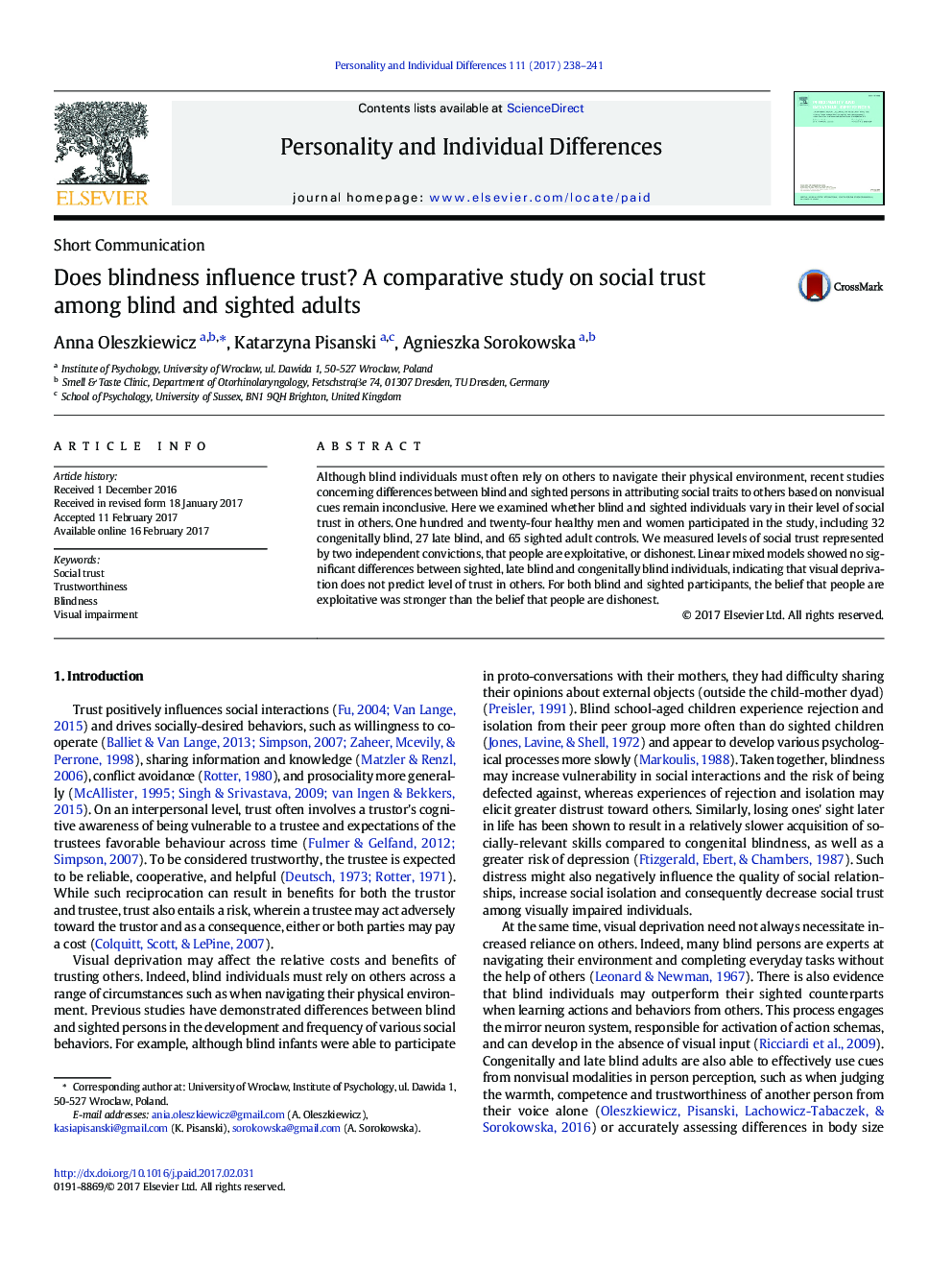| Article ID | Journal | Published Year | Pages | File Type |
|---|---|---|---|---|
| 5035961 | Personality and Individual Differences | 2017 | 4 Pages |
â¢Study included 32 congenitally blind, 27 late blind and 65 sighted men and women.â¢Participants completed a standardized survey measuring their level of social trust.â¢Belief that people are exploitative was stronger than belief that people are dishonest.â¢Blind and sighted persons did not differ in any subscale of social trust.â¢Visual deprivation across lifetime does not predict level of trust in others.
Although blind individuals must often rely on others to navigate their physical environment, recent studies concerning differences between blind and sighted persons in attributing social traits to others based on nonvisual cues remain inconclusive. Here we examined whether blind and sighted individuals vary in their level of social trust in others. One hundred and twenty-four healthy men and women participated in the study, including 32 congenitally blind, 27 late blind, and 65 sighted adult controls. We measured levels of social trust represented by two independent convictions, that people are exploitative, or dishonest. Linear mixed models showed no significant differences between sighted, late blind and congenitally blind individuals, indicating that visual deprivation does not predict level of trust in others. For both blind and sighted participants, the belief that people are exploitative was stronger than the belief that people are dishonest.
